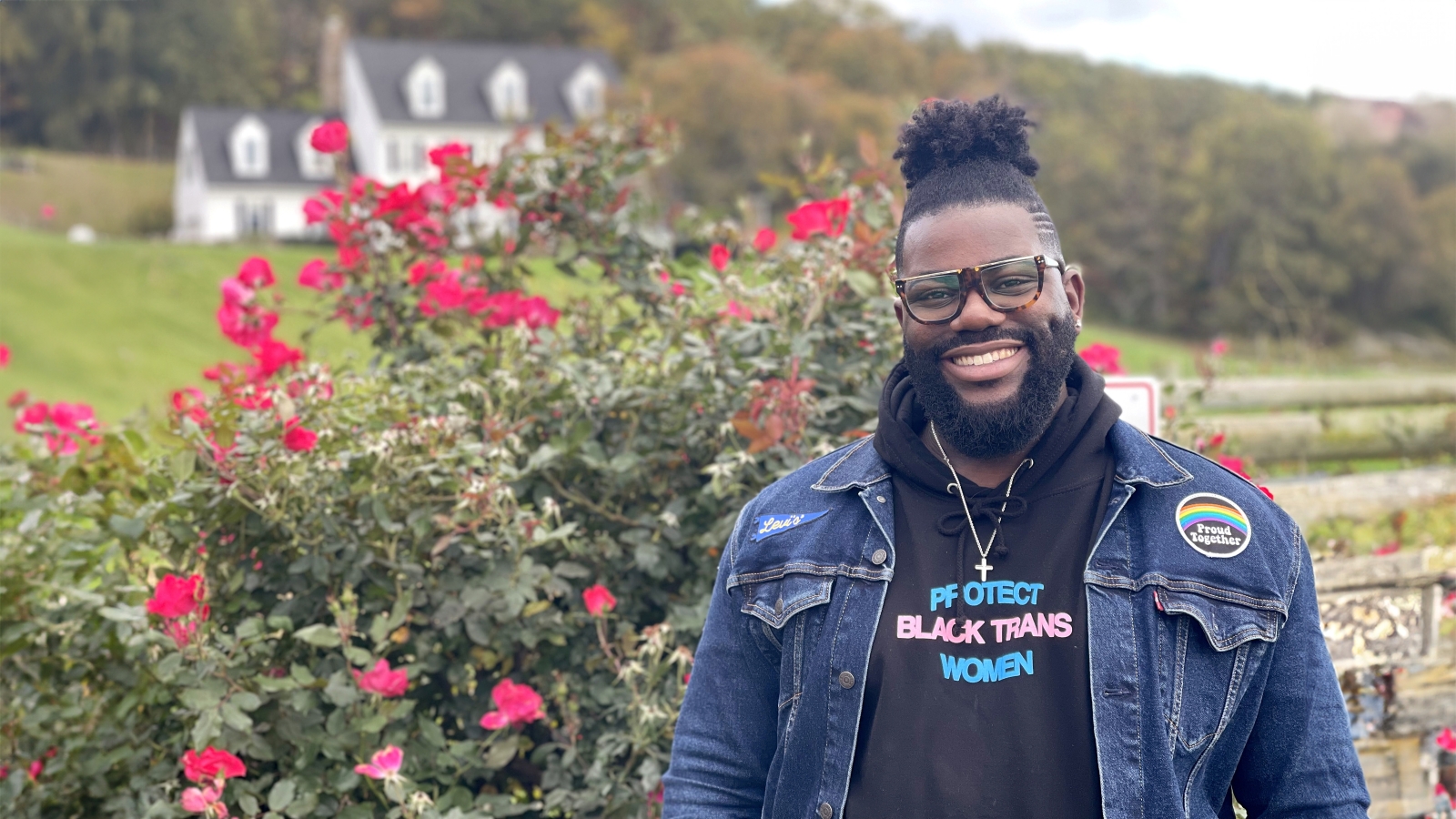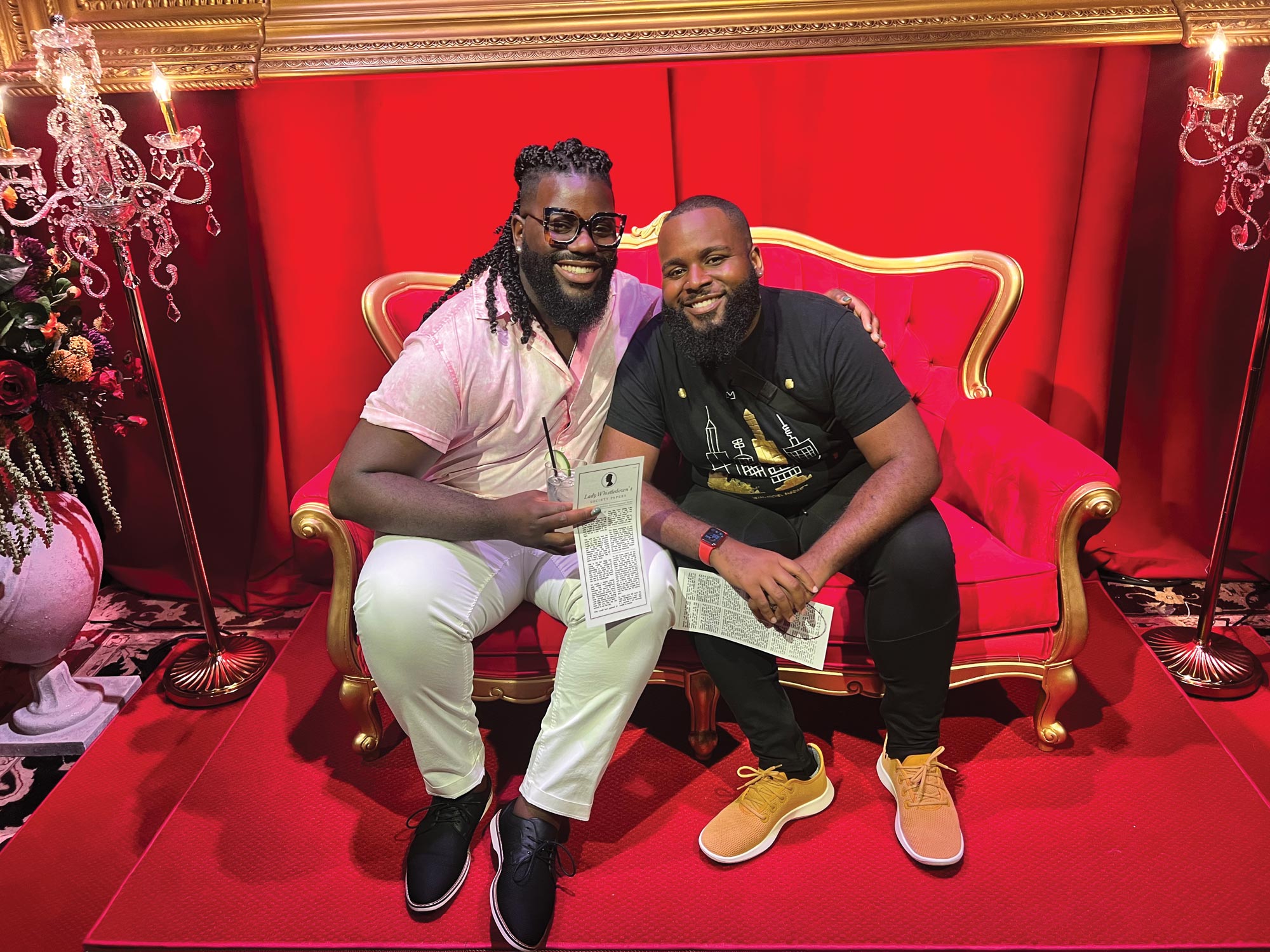Representation in Technology
Victor Scotti, Jr., C’13, works toward a future where diversity, equity, and inclusion are the norm.

Editor’s Note: In 2022, Omnia spoke to Victor Scotti, C’13, about his work advancing diversity, equity, and inclusion in technology. Since then, he’s rebounded from a layoff by creating a holistic space for beauty and wellness centering people often relegated to the margins.
Since graduating from Penn, Victor Scotti, C’13, has thrived as a diversity, equity, and inclusion (DEI) practitioner in the technology space. He’s currently a Hiring Equity Lead at Google, focusing on building systems and structures that enable inclusive recruiting. He previously built technical development programs that support Black and Latinx students at historically Black colleges and universities and Hispanic-serving institutions. Additionally, Scotti operates his own company, Moving Mountains, which “accelerates Black boys’ self-efficacy” through professional experiences, job shadowing, mentorship, and socio-emotional support.
Scotti, who majored in sociology and double minored in urban education and Africana Studies, discusses his experience at Penn, why DEI is essential in technology, and his advice for Black and queer students.
What did you most enjoy about your experience at Penn?
Growing up on the South Side of Chicago and spending time on the University of Chicago’s campus, I was looking for a university that was also deeply embedded in its surrounding community. Upon visiting Penn, I learned about all the opportunities for students to engage in West Philadelphia and couldn’t have been more excited. As a student, I participated in the Civic Scholars Program through the Civic House, Alpha Phi Alpha Fraternity, Inc., Psi Chapter, and the Greenfield Intercultural Center. What I appreciated most about my Penn experience was that our classroom conversations reflected what was happening in and around Philadelphia.
How did you start your career in technology and in the area of DEI?
I was introduced to Google at a Wharton event in 2010. So, in many ways, Penn helped launch my career in tech. In terms of diversity, equity, and inclusion, I grew up engaging in conversations about equity, access, and power. I come from a family of educators; my parents and grandparents were teachers and then went on to work in other capacities supporting the education system. I was also looking for a way to impact Black people, especially Black students, in my career post-Penn. Once I realized I could do that through tech, I launched a career path focused on student development at Google and then at Netflix. After leading student programs for a while, I decided that I could impact economic mobility for Black people—that’s my mission and North Star—differently. That led to my current role as Hiring Equity Lead at Google.
Technology has a significant influence on our world. Why is DEI in technology so important?
Technology dictates so much of how we operate, and even in specific ways, who we are—the life and images we curate. It’s imperative to me that folks who are underrepresented have the opportunity to see ourselves— that our experiences, nuances, and complexities are reflected in technology. Google’s flagship Pixel 6 phone comes to mind. When you think about the history of photography, you have to remember the technology is indexed against lighter skin tones; in other words, cameras are fundamentally not created to respect Black and Brown skin tones. Google is combatting this. The Pixel includes “true tone,” which intentionally highlights our beautiful chocolate and brown hues and skin tones.
The bottom line is that technology will only become further embedded in our lives; I think about virtual reality, artificial intelligence, and machine learning, for example. We must ensure that we’re creating and building this technology in a way that represents all people, perspectives, and experiences.

Victor Scotti, Jr., C’13 (left) and his fiancé Gary Davis, II, GSE’17
Courtesy of Victor Scotti, Jr.
You established the Scotti Legacy Scholarship in the School of Arts & Sciences in 2021. Why?
Focusing my philanthropic giving on a population I’m part of is vital to me. I had a great experience at Penn, so it’s crucial for me—as a Black and queer alum—to help ensure that students after me have equitable experiences. One way I do this is through the Scotti Legacy Scholarship, specifically for Black male students pursuing a major in the College of Arts & Sciences.
Who inspires you?
James Baldwin. I’ve gained perspective, purpose, representation, and validation from his words, life, and legacy. There’s nuance in my identity. I’m Black. I’m a man. I’m in a fraternity. I’m Christian. Navigating all those intersections that each have their own beautifully complicated histories and being able to center who I am is something I think about every day. I draw much inspiration from Baldwin’s life and purpose from his words.
My parents are also a huge inspiration. In their own ways, they’ve committed their lives to service through education and commitment to our family and community. The greatest lesson they’ve taught me is that we are not in this world alone; we must do our part with the blessings we have to help one another. I think about that every day, especially with my people-centric work.
What advice would you give to Penn students, particularly students who are Black and/or queer?
I would start by telling them that they are enough. Our current climate can be divisive and, frankly, anti-Black. So, I would start by validating who they already are. They don’t need to shift and morph in ways that are unnatural to them to be accepted. I would also share with them that they have agency. They can choose the type of work they want to do, the impact they want to have on the world, how they spend their energy, and how they utilize their resources. The world is theirs for the taking.



